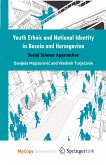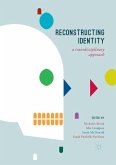Rethinking Identity Fusion presents a critique of Identity Fusion Theory, an identity-based social psychological approach to understanding pro-group extremism. It scrutinises the theory's main theoretical claims and research methods, exposing serious inconsistencies and gaps in how the theory handles the concept of identity and in its research programme. The book demonstrates the flattening of the theory's main concept, "identity fusion", and the general state of confusion in the recent literature as to the theory's claims and predictions.
The book offers a reinterpretation of Identity Fusion Theory through a discursive perspective, critiquing its cognitivist assumptions about the nature of human relationships and identity. In this way, its scope extends to wider critiques of experimental and quantitative methods in contemporary social psychology. It argues that such theoretical and methodological shortcomings, rather than hindering a flawed approach, can accelerate its adoption in social psychology by creating an image of theoretical unity and consistency on top of a field characterised by confusion and contradiction.
The book offers a reinterpretation of Identity Fusion Theory through a discursive perspective, critiquing its cognitivist assumptions about the nature of human relationships and identity. In this way, its scope extends to wider critiques of experimental and quantitative methods in contemporary social psychology. It argues that such theoretical and methodological shortcomings, rather than hindering a flawed approach, can accelerate its adoption in social psychology by creating an image of theoretical unity and consistency on top of a field characterised by confusion and contradiction.








